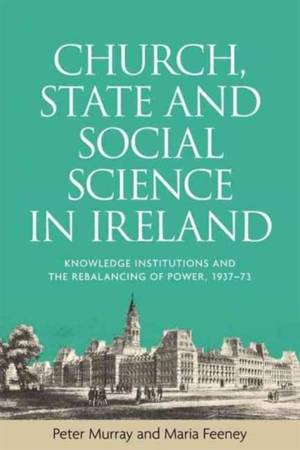
- Afhalen na 1 uur in een winkel met voorraad
- Gratis thuislevering in België vanaf € 30
- Ruim aanbod met 7 miljoen producten
- Afhalen na 1 uur in een winkel met voorraad
- Gratis thuislevering in België vanaf € 30
- Ruim aanbod met 7 miljoen producten
Zoeken
Church, State and Social Science in Ireland
Knowledge Institutions and the Rebalancing of Power, 1937-73
Peter Murray, Maria Feeney
Hardcover | Engels
€ 209,45
+ 418 punten
Uitvoering
Omschrijving
This case study casts new light on wider processes of change, and the story features a strong and somewhat surprising cast of characters ranging from Sean Lemass and T.K. Whitaker to Archbishop John Charles McQuaid and Father Denis Fahey.
Specificaties
Betrokkenen
- Auteur(s):
- Uitgeverij:
Inhoud
- Aantal bladzijden:
- 272
- Taal:
- Engels
Eigenschappen
- Productcode (EAN):
- 9781526100788
- Verschijningsdatum:
- 16/11/2016
- Uitvoering:
- Hardcover
- Formaat:
- Genaaid
- Afmetingen:
- 156 mm x 234 mm
- Gewicht:
- 557 g

Alleen bij Standaard Boekhandel
+ 418 punten op je klantenkaart van Standaard Boekhandel
Beoordelingen
We publiceren alleen reviews die voldoen aan de voorwaarden voor reviews. Bekijk onze voorwaarden voor reviews.











